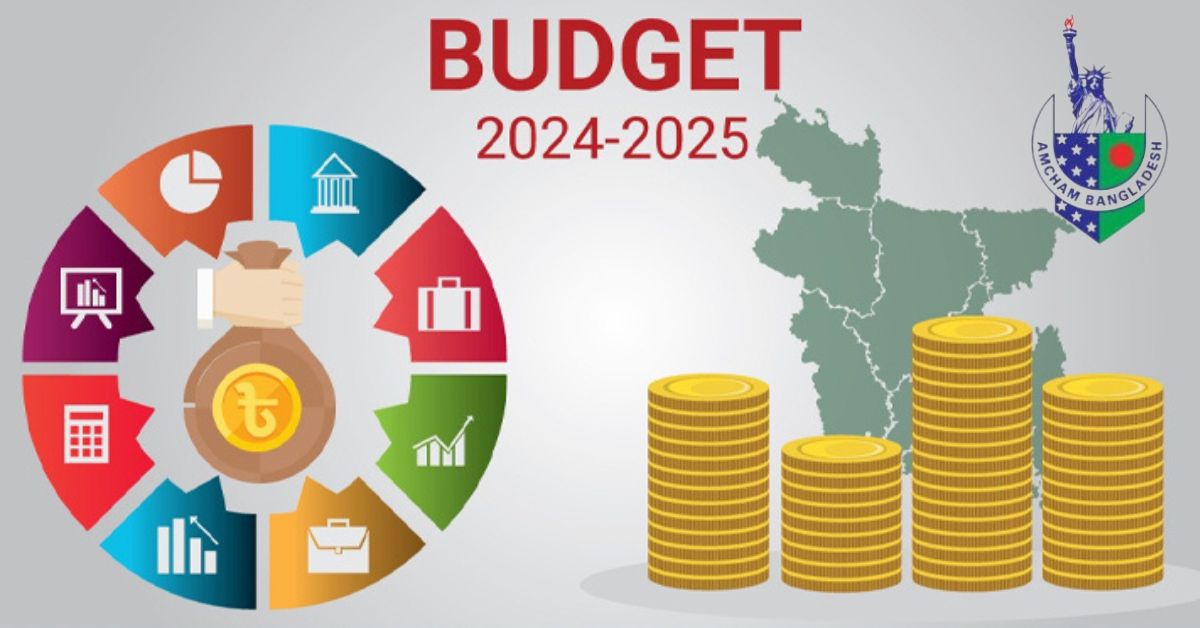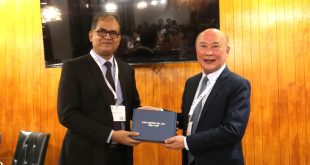 International Desk: Bangladesh has made remarkable economic growth over the past decade, a testament to its resilience, policy decisions, and commitment to reducing poverty and fostering shared prosperity. Nevertheless, we believe the budget formulation and implementation should be handled by separate entities to maintain the sanctity and address the key challenges that include declining foreign exchange reserves, the balance of payment deficit, energy sector demand-supply imbalances and the struggling banking sector. We also believe the central bank must work together with the government and policymakers to implement effective measures to control inflation and stable macroeconomy. Addressing these requires a holistic approach that entails monetary policy adjustment, fiscal discipline, promoting FDI and exports, and fostering long-term structural changes with stakeholder engagement and collaboration.
International Desk: Bangladesh has made remarkable economic growth over the past decade, a testament to its resilience, policy decisions, and commitment to reducing poverty and fostering shared prosperity. Nevertheless, we believe the budget formulation and implementation should be handled by separate entities to maintain the sanctity and address the key challenges that include declining foreign exchange reserves, the balance of payment deficit, energy sector demand-supply imbalances and the struggling banking sector. We also believe the central bank must work together with the government and policymakers to implement effective measures to control inflation and stable macroeconomy. Addressing these requires a holistic approach that entails monetary policy adjustment, fiscal discipline, promoting FDI and exports, and fostering long-term structural changes with stakeholder engagement and collaboration.
- Foreign Exchange Reserve: Recently, Bangladesh Bank introduced a crawling peg exchange rate system we hope it will help stabilizing the exchange rate, managing inflation, enhancing export competitiveness, and increasing remittance flow. Offshore banking units should introduce FC term/fixed deposit products to attract people to invest through banking channels. Additionally, accelerating foreign-funded projects and focusing primarily on own-funded projects may elevate pressure on the Foreign Exchange Reserves.
- Alternatives to Increase Export Revenue: The RMG sector contributed 10.35% to the GDP in the last FY. Bangladesh has 7.9 million SMEs, contributing significantly to export GDP, making up 37.56% in the previous FY. Expanding these SMEs and diversifying the industries could help export competitiveness. We recommend policy reforms and more allocation of funds for the SME Sector.
- Adjustment of the Tax-free Threshold: We recommend revising individuals’ tax-free income limit in response to rising inflation. Diverse policies in individual tax rates, exemptions, deductions, and credits affect different taxpayers based on their income levels, types of income sources, and other individual circumstances.
- Tax and VAT Policy: The National Board of Revenue (NBR) proposes a 15% standard VAT rate for the fiscal year 2024-25, potentially impacting imported goods. It’s crucial to regulate this to exempt essential products. Foreign investors would be affected as turnover tax and SD increased in a few sectors. Extending the tax holiday for Bangladesh’s ICT sector is poised to attract investors and fuel further growth. Taxation system, while becoming progressive, needs automation by leveraging technology and data-driven approaches to enhance efficiency and transparency.
- Social Safety Nets: The proposed plans to increase social safety net allocations in this budget by adding 600,000-700,000 new beneficiaries expected to rise to Tk 1.35 trillion, equivalent to 17.1% of the total budget. We applaud the initiative for uplifting marginalized communities and fostering a more inclusive society.
- Duties on EPZ and Hitech Parks: The sudden reductions in existing duty and tax facilities by imposing 1% duty on capital machinery, parts, etc imported in EPZs and high-tech parks could prompt foreign investors to reconsider their commitments, undermining their confidence and that of local investors.
- Renewable Energy to Offload Existing Supply Chain: Investing in renewable energy benefits us environmentally and contributes to economic growth through job creation and market expansion in related industries supporting clean-energy technologies. We recommend favorable immediate initiatives.
- Reducing Per Capita Liability: Bangladesh’s debt-to-GDP ratio has steadily increased over the past few years. We recommend adopting prudent debt management strategies that promote accountability and fiscal discipline.
- Focused Project on Climate Vulnerability: Bangladesh ranks 7th most vulnerable countries to climate devastation. All anti-environment projects against the notion of a green economy should be abandoned. We strongly recommend creating budgetary allocations for such projects since Bangladesh is already experiencing erratic weather patterns.
Our maiden national logistics policy is a testament to the government’s commendable efforts. It is expertly crafted through collaboration with international development partners and private sector stakeholders. We expect expedited implementation of the policy so to reap competitive advantage during the post LDC period.
We should focus more demographic dividend by developing potential human capital ensuring quality STEM and Vocational education to enhance remittance by sending skilled manpower overseas.
As Bangladesh glides through rapidly evolving global phenomenon, strategic & effective policies supported by adaptability is crucial to encourage technology transfer and the creation of high-value products and services, making Bangladesh a prominent business hub with seamless transition fostering sustainable economic development.
AmCham believes budget execution is what matters in the end and should be measured for quantity and quality.
 Agrinews24 কৃষির সাথে, কৃষকের পাশে
Agrinews24 কৃষির সাথে, কৃষকের পাশে





















